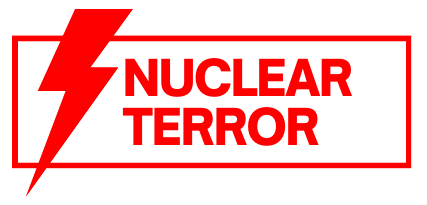Is nuclear proliferation posing a threat to global security? In this article, we will explore the historical context, current state, and implications of nuclear proliferation. We will examine the risks of nuclear terrorism and non-state actors, as well as the challenges in non-proliferation efforts. Additionally, we will analyze international treaties and agreements on nuclear disarmament. By considering these factors, we aim to provide a comprehensive understanding of the potential threats and future prospects for preventing nuclear proliferation.
Historical Context of Nuclear Proliferation
In the historical context of nuclear proliferation, you must understand the role played by major world powers. The development and spread of nuclear weapons can be traced back to the political motivations and technological advancements of these powers. Throughout history, countries have sought to acquire nuclear weapons for various reasons, including national security, deterrence, and prestige.
Political motivations have played a significant role in driving nuclear proliferation. Major world powers, such as the United States and the Soviet Union during the Cold War, engaged in a nuclear arms race as a demonstration of their military might and global dominance. This competition led to the development and testing of increasingly powerful nuclear weapons.
Technological advancements have also played a crucial role in nuclear proliferation. The discovery of nuclear fission in the 1930s paved the way for the development of atomic bombs. Subsequent advancements in nuclear technology led to the creation of more sophisticated and destructive weapons, such as hydrogen bombs. These advancements made it easier for countries to acquire and develop nuclear weapons.
Understanding the political motivations and technological advancements behind nuclear proliferation is essential for evaluating its impact on global security. It allows us to analyze the motivations of countries seeking nuclear weapons and assess the potential risks and challenges posed by their possession. Moreover, it highlights the need for international cooperation and non-proliferation efforts to mitigate the threats associated with nuclear proliferation.
The Current State of Global Nuclear Arsenals
To understand the potential threat posed by nuclear proliferation, it is crucial to examine the current state of global nuclear arsenals. The world is currently grappling with two conflicting trends: global nuclear disarmament efforts and the modernization of existing nuclear weapons.
On one hand, there have been concerted efforts towards global nuclear disarmament. The Treaty on the Non-Proliferation of Nuclear Weapons (NPT) has played a pivotal role in controlling the spread of nuclear weapons. Many countries, including the United States and Russia, have reduced their nuclear arsenals significantly since the end of the Cold War. Additionally, several non-nuclear weapon states have voluntarily abandoned their nuclear weapons programs. These efforts highlight a commitment to reducing the overall number of nuclear weapons in the world.
On the other hand, there has been a parallel trend of nuclear weapons modernization. Some nuclear-armed states have been investing in upgrading their nuclear capabilities, which raises concerns about a potential arms race. These modernization efforts involve the development of advanced delivery systems, enhancement of weapon designs, and improvement of command and control systems. The ongoing modernization efforts raise questions about the long-term commitment to disarmament and the potential for an escalation in nuclear capabilities.
Implications of Nuclear Proliferation on Regional Stability
When considering the implications of nuclear proliferation on regional stability, there are several key points to analyze. First, the escalation of an arms race between nuclear-armed states can heighten tensions and increase the risk of conflict. Second, the potential for proxy conflicts, where nuclear-armed states support opposing sides in regional disputes, further complicates the stability of the region. Finally, the effectiveness of nuclear deterrence in preventing conflicts remains a topic of debate, as it can both discourage aggression and create a delicate balance of power that can lead to miscalculations or accidental escalations.
Arms Race Escalation
Regional stability is directly impacted by the escalation of an arms race resulting from nuclear proliferation. The dynamics of an arms race involve a rapid increase in the development and deployment of nuclear weapons by multiple nations in response to perceived security threats. This escalation creates a dangerous situation, as it increases the likelihood of conflict and heightens tensions between countries. The geopolitical implications of such an arms race are significant. It can lead to a breakdown in diplomatic relations, undermine trust and cooperation among nations, and increase the risk of nuclear accidents or miscalculations. Additionally, the proliferation of nuclear weapons can lead to a shift in power dynamics, potentially destabilizing regions and creating further security concerns. It is crucial to address the arms race escalation resulting from nuclear proliferation to maintain regional stability and global security.
Proxy Conflicts Potential
One potential implication of nuclear proliferation on regional stability is the potential for proxy conflicts to arise. When multiple countries in a region possess nuclear weapons, it creates a power dynamic that can lead to heightened tensions and increased likelihood of conflicts being fought by proxy. Proxy conflicts occur when two or more opposing powers support different factions or groups within a region, providing them with military and financial assistance. These conflicts can escalate quickly, as each side seeks to gain an advantage and protect its interests. The risk of regional stability being compromised is significant, as proxy conflicts often result in widespread violence, displacement of populations, and the potential for the use of nuclear weapons. Therefore, the implications of nuclear proliferation on regional stability include the heightened risks of proxy conflicts and the subsequent destabilization of the region.
Nuclear Deterrence Effectiveness
As countries in a region continue to possess nuclear weapons, the effectiveness of nuclear deterrence becomes crucial in maintaining regional stability. Evaluating nuclear deterrence strategies is essential to assess their effectiveness in deterring potential adversaries from using their own nuclear weapons. Nuclear deterrence policy evaluation involves analyzing various factors such as the credibility of a country’s nuclear capabilities, the perceived cost of aggression, and the level of trust and communication between nuclear-armed states. Additionally, the ability to respond quickly and decisively to any potential threat is essential for an effective deterrence strategy. It is important to regularly assess and adapt nuclear deterrence policies to account for changing geopolitical dynamics and emerging technologies. By continually evaluating and improving nuclear deterrence strategies, regional stability can be maintained, reducing the likelihood of nuclear conflicts.
Risks of Nuclear Terrorism and Non-State Actors
The risks of nuclear terrorism and non-state actors pose significant threats to global security. Non-state actors, such as terrorist organizations, seek to acquire nuclear weapons to further their extremist agendas, potentially causing catastrophic consequences. The possibility of nuclear weapons falling into the wrong hands heightens the risk of unauthorized use, leading to widespread destruction and loss of life. These dangers necessitate a comprehensive and robust international effort to prevent the proliferation of nuclear weapons and ensure the safety of the global community.
Non-State Actor Dangers
The risks of nuclear terrorism and non-state actors pose a significant threat to global security. Non-state actors, such as terrorist groups or rogue individuals, have the potential to acquire and use nuclear weapons or materials for destructive purposes. Their capabilities to carry out such actions have been a growing concern for the international community. These actors may exploit various avenues, including illicit trafficking networks, to acquire nuclear materials. Moreover, the cyber vulnerabilities of nuclear facilities and systems can be exploited by non-state actors to gain access to sensitive information or even sabotage critical infrastructure. This combination of non-state actor capabilities and cyber vulnerabilities creates an alarming scenario that demands urgent attention and robust security measures. The global community must work together to address these threats and prevent the catastrophic consequences of nuclear terrorism.
Nuclear Terrorism Risks
To understand the potential risks of nuclear terrorism and non-state actors, it is important to consider the acquisition and use of nuclear weapons or materials by these actors. The possibility of nuclear terrorism is a grave concern for global security. Here are three scenarios that illustrate the risks:
- A non-state actor successfully procures a nuclear weapon and detonates it in a major city, causing widespread devastation and loss of life.
- A terrorist organization manages to gain access to highly enriched uranium or plutonium, allowing them to construct an improvised nuclear device, which they then use as a threat to coerce governments or carry out an attack.
- Non-state actors exploit vulnerabilities in nuclear facilities or transport systems, stealing radioactive materials and using them for malicious purposes, such as creating a dirty bomb.
In order to prevent nuclear terrorism, robust counter-terrorism measures must be implemented, including enhanced security at nuclear facilities, improved intelligence sharing, and international cooperation to track and prevent illicit trafficking of nuclear materials.
Global Security Implications
To fully grasp the global security implications of nuclear proliferation, it is crucial to understand the alarming risks posed by nuclear terrorism and non-state actors. The threat of nuclear terrorism is a pressing concern that demands global cooperation and diplomatic efforts. Non-state actors, such as terrorist organizations, have shown a willingness to acquire and use nuclear weapons, which could have catastrophic consequences. The ease of access to nuclear materials and the potential for their acquisition on the black market further exacerbate this risk. The international community must work together to strengthen nuclear security measures, enhance intelligence sharing, and prevent the proliferation of nuclear weapons. It is essential to establish robust mechanisms for cooperation and coordination to effectively counter the threat of nuclear terrorism and the involvement of non-state actors.
Challenges in Nuclear Non-Proliferation Efforts
In addressing the challenges of nuclear non-proliferation, you must confront the complexities that arise in preventing the spread of nuclear weapons. These challenges stem from the delicate balance between diplomacy and technology advancements. Here are three key points to consider:
- Challenges in diplomacy: Nuclear non-proliferation efforts require extensive diplomatic negotiations and cooperation among nations. However, differing political interests, historical conflicts, and power dynamics often hinder progress. The delicate nature of these negotiations requires skilled diplomats to navigate complex relationships and find common ground.
- Technology advancements: Advancements in nuclear technology present a significant challenge to non-proliferation efforts. As technology develops, it becomes increasingly difficult to detect clandestine nuclear activities, making it easier for countries to pursue covert nuclear programs. Additionally, the dual-use nature of nuclear technology, which can be used for both peaceful and military purposes, adds to the complexity of monitoring and verifying compliance.
- Enforcement and compliance: Ensuring compliance with non-proliferation obligations is another major challenge. Despite international agreements and treaties, some countries may choose to pursue nuclear weapons in secret. Detecting and deterring such activities require robust monitoring systems, intelligence capabilities, and effective enforcement mechanisms.
To address these challenges, international cooperation, transparency, and trust-building measures are essential. Strengthening diplomatic efforts, investing in advanced detection technologies, and improving verification mechanisms can contribute to more effective nuclear non-proliferation efforts.
International Treaties and Agreements on Nuclear Disarmament
The international treaties and agreements on nuclear disarmament play a crucial role in addressing the threat of nuclear proliferation to global security. These agreements are a result of international cooperation and diplomatic negotiations aimed at reducing the number of nuclear weapons worldwide and preventing their spread to non-nuclear states. The most significant treaty in this regard is the Treaty on the Non-Proliferation of Nuclear Weapons (NPT), which has been ratified by 191 countries. The NPT aims to achieve nuclear disarmament, promote the peaceful use of nuclear energy, and prevent the further proliferation of nuclear weapons. It establishes a framework for cooperation and verification, including the International Atomic Energy Agency (IAEA), which monitors and verifies the compliance of signatory states. Other important agreements include the Comprehensive Nuclear-Test-Ban Treaty (CTBT), which prohibits nuclear weapon tests, and the Treaty on the Prohibition of Nuclear Weapons (TPNW), which aims to completely eliminate nuclear weapons. While these treaties and agreements have limitations and challenges, they provide a foundation for international efforts to address nuclear proliferation and enhance global security. Continued commitment to these treaties, along with effective implementation and enforcement, is crucial to achieving a nuclear weapon-free world.
Future Prospects and Strategies for Preventing Nuclear Proliferation
Your commitment and action are essential in preventing nuclear proliferation and ensuring global security. As we look towards the future, it is important to consider the prospects and strategies that can be employed to achieve this goal. Here are three key strategies that can help prevent nuclear proliferation:
- Strengthening Non-Proliferation Treaties: International treaties such as the Treaty on the Non-Proliferation of Nuclear Weapons (NPT) play a crucial role in preventing the spread of nuclear weapons. To enhance their effectiveness, efforts should be made to strengthen and enforce these treaties. This includes promoting universal adherence to the NPT, ensuring compliance through regular inspections and verification measures, and addressing any loopholes or weaknesses in the existing agreements.
- Promoting Diplomacy and Dialogue: Diplomatic efforts and dialogue between nations can play a significant role in preventing nuclear proliferation. By fostering open lines of communication, addressing underlying concerns, and promoting peaceful resolutions to conflicts, diplomatic initiatives can help reduce the incentives for countries to pursue nuclear weapons programs. Engaging in multilateral discussions, such as the P5+1 negotiations with Iran, can serve as a model for future diplomatic efforts.
- Encouraging Nuclear Disarmament: The ultimate goal in preventing nuclear proliferation is the complete elimination of nuclear weapons. Countries possessing nuclear weapons should take steps towards disarmament, reducing their arsenals and working towards their eventual elimination. This can be achieved through bilateral and multilateral agreements, as well as confidence-building measures that promote trust and cooperation among nations.


